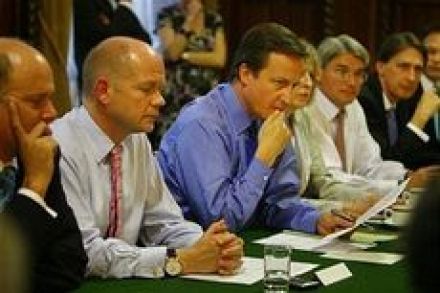A shaming episode
The Culture Secretary would be advised to keep his fingers to himself. Following Wednesday’s Twitter gaffe, he let fly on Twitter once again. His target was David Cameron’s demolition of the state. All Bradshaw hit was Cameron’s dead son Ivan. He tweeted: ‘the camerons got good nhs care thanks to Labour’s investment and reform. Is this the ‘big government’ the derides.’ (sic) Bradshaw then issued a clarification, not an apology, on Twitter: ‘it wasn’t meant to be offensive. Point is they will the ends but not the means. Need positive government to deliver these things.’ (sic) Twitter is an internet gimmick, not the floor of the House of Commons, and as




















